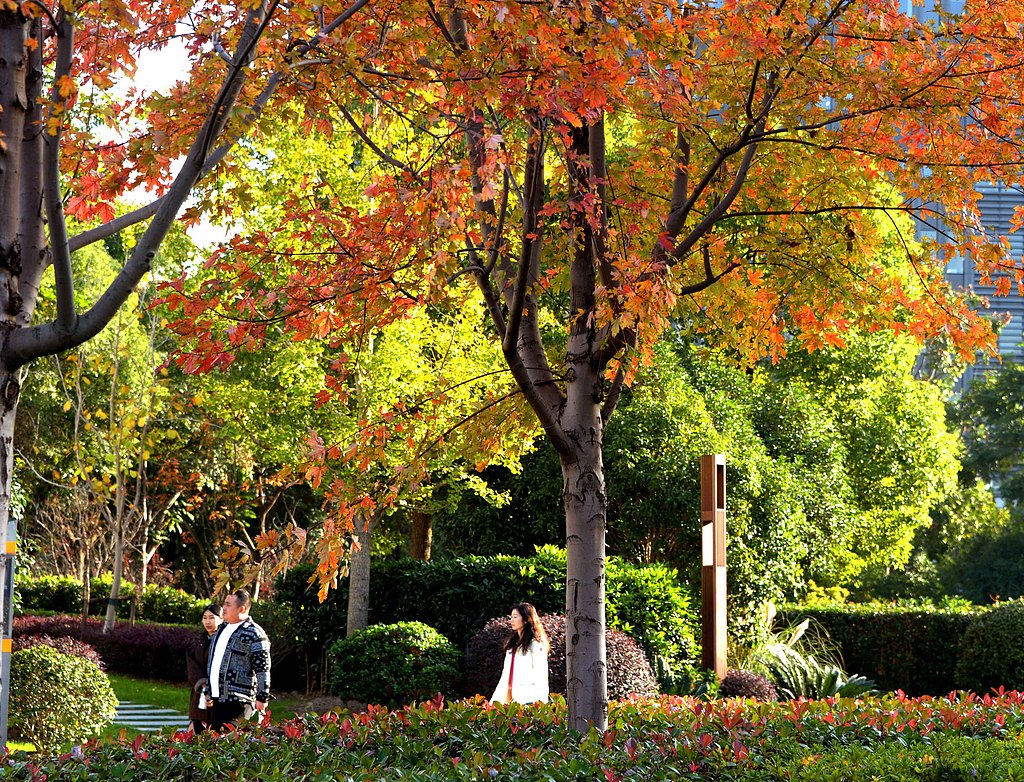
A red maple forest paints a vibrant and picturesque scene at a park in Shanghai's Pudong area, on Nov 27, 2024. [Photo/VCG]
Shanghai's dedicated efforts in enhancing its ecological environment over the past year have yielded impressive results, with the city achieving notable improvements in various environmental indicators, as highlighted by Yan Bo, the director of the Shanghai Municipal Bureau of Ecology and Environment, during a press conference on Jan 17.
The air quality in Shanghai was rated "good" for 88.5 percent of the days throughout the year, marking an increase of 0.8 percent compared to the previous year. Notably, the concentration of PM2.5 remained stable at a low level of 28.4 micrograms per cubic meter.
Moreover, Shanghai has made remarkable progress in water quality management, with the proportion of surface water classified as Grade III or above reaching an impressive 99.3 percent according to the country's five-tier water quality system. This represents a year-on-year increase of 1.5 percent and stands as the highest level achieved in recent years.
To tackle pollution at its source, Shanghai conducted inspections on 1.04 million pollutant-discharging outlets, regulating 360,000 of them to mitigate environmental harm. The city has also implemented policies to promote green development in key sectors such as integrated circuits and pharmaceutics, supporting 191 municipal-level projects to promote sustainable practices.
Yan highlighted the transformation of former industrial areas along the Huangpu River and Suzhou Creek into leisure destinations with expansive green ecological spaces. Regions like the Yangpu and Xuhui riverside, once industrial bases, have been revitalized to offer residents serene environments for relaxation and recreation.
Shanghai has also prioritized public access to green spaces, with 849 parks now open 24 hours a day, accounting for 87.3 percent of the city's total parks. These parks serve as community hubs offering a range of services including leisure activities, fitness facilities, art and cultural events, and educational programs, enriching the lives of residents.
Looking ahead, Shanghai aims to further improve air, land and water quality while addressing issues such as noise pollution and cooking fumes. The city also plans to enhance cooperation with neighboring cities to coordinate pollution control efforts in the Yangtze River Delta region, fostering a collaborative approach to environmental conservation.
At the community level, Shanghai is set to embark on constructing a series of habitat gardens this year, exploring innovative models that promote harmonious co-existence between nature and urban life in megacity environments.
Gu Yingjie contributed to this story.